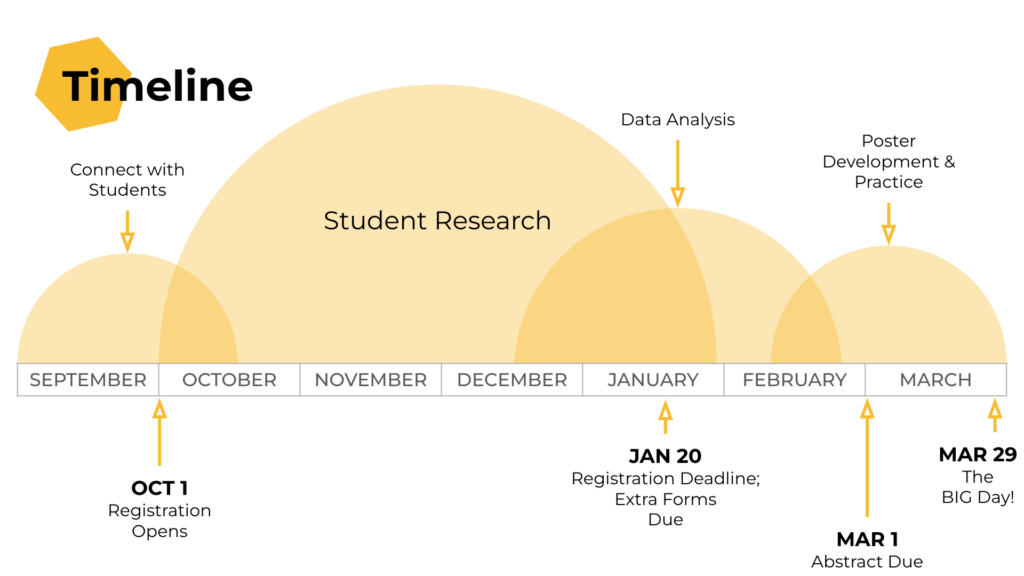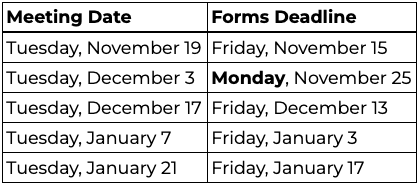Plan

Guiding students toward the Maine State Science Fair requires a balance of planning and adaptability on behalf of teachers. We encourage you to use our deadlines, below, to plan how your school year will be structured. You may choose to add in some deadlines of your own to keep students on track.
SCHEDULE for the 2025 MSSF
Saturday, March 29, 2025 | University of New England, Portland Campus
Innovation Hall, 772 Stevens Avenue, Portland
Students should arrive at Innovation Hall and have their displays set up by 8:30 am.
We’ll give students an overview of the day and set the stage for a great event. Students should have their posters set up by 8:30.
Half of the projects will be judged from 9:00 to 10:15. Students in round 1 should be at their posters during this time. Judges will approach students, who can describe their projects and then answer questions.
Judges get a chance to recharge while the second group of students prepares for their judging round.
The remaining projects will be judged from 10:45 to 12:00. Students in round 2 should be at their posters during this time. Judges will approach students, who can describe their projects and then answer questions.
This is a good time to take down your displays and load them into your bus/car.
We’ll gather back in Innovation Hall to celebrate the day.
Students head home.
CALENDAR
- January 20 – Student Registration
- January 20 – Research Plans & forms due for projects needing SRC and/or IRB review
- March 1 – Abstracts due for all projects
- March 29 – Maine State Science Fair @ UNE

INSTITUTIONAL REVIEW BOARD (IRB)
The IRB reviews all projects involving human participants. These projects must receive approval before the student researchers begin experimentation or prototype testing. The IRB meets approximately every two weeks, as shown here. Students wishing to have their project reviewed by the IRB must have all forms submitted with teacher approval in LaunchPad by noon on the deadline listed for that meeting.

COVID POLICY
- The event is closed to spectators beyond chaperones accompanying bussed students and parents who are driving their teens to the event because their school does not provide a bus.
- Everyone in attendance will remain masked for the duration of the event while in the Field House, including any aforementioned parents or chaperones.
- Any student who meets the CDC Guidelines for Quarantine or Isolation must participate virtually.
- Students can also switch to virtual participation for any reason, but they cannot switch from virtual to in-person.
- On a related note, Colby College does not allow any food or drinks, except for water, in the Field House. We will send students home with boxed lunches at noon.
RULES
The following Rules and Guidelines are based on the International Rules and Guidelines for Science Fairs, Society for Science & the Public.
The purpose of these rules is to:
- protect the rights and welfare of the student researcher
- protect the rights and welfare of the human participant
- protect the health and welfare of the vertebrate animal subject
- ensure adherence to federal regulations
- ensure use of safe laboratory practices
- protect the environment
- ensure eligibility for competition in the Intel International Science and Engineering Fair
Ethics Statement
Scientific fraud and misconduct are not condoned at any level of research or competition. This includes plagiarism, forgery, use or presentation of the researcher’s work as one’s own, and fabrication of data. Fraudulent projects will fail to qualify for competition. The Maine State Science Fair reserves the right to revoke recognition of a project subsequently found to have been fraudulent.
Eligibility/Limitations
- Maine State Science Fair is open to all 9th-12th grade students who attend a school in Maine or are homeschooled in Maine.
- A student must not have reached age 20 on or before May 1 immediately following the fair.
- Each student may enter only one project. That project may include no more than 12 months of continuous research and may not include research performed before January of the previous calendar year.
- Team projects may have up to three members if they wish to be considered for awards or prizes. Teams may not substitute members in a given research year.
- A research project may be apart of a larger study performed by professional scientists, but the project presented by the student must be only their own portion of the complete study.
All Projects
- All projects must adhere to the ethics statement above.
- All projects must adhere to local, state and U.S. Federal laws, regulations and permitting conditions.
- It is the responsibility of the student(s) and the Adult Sponsor to evaluate the study to determine if the research will require forms and/or review and approval prior to experimentation.
- The use of non-animal research methods and the use of alternatives to animal research are strongly encouraged and must be explored before conducting a vertebrate animal project.
- Introduction or disposal of non-native, genetically altered, and/or invasive species (e.g. insects, plants, invertebrates, vertebrates), pathogens, toxic chemicals or foreign substances into the environment is prohibited.
- Exhibits must adhere to the MSSF Display and Safety Requirements.
Approval and Documentation
- Project documentation should begin in LaunchPad before experimentation begins unless the student has received written permission from the MSSF team. Projects involving human participants, vertebrate animals, and potentially hazardous biological agents are subject to prior review and approval by the Maine State Science Fair Institutional Review Board (IRB) and/or Scientific Review Committee (SRC) prior to experimentation.
- Each project must name an Adult Sponsor (typically a classroom teacher or another adult research mentor), who must sign off on the project in LaunchPad.
- A Qualified Scientist is required for all studies involving BioSafety Level-2 (BSL-2) potentially infectious or hazardous biological agents and DEA- controlled substances, and is also required for many human participant studies and many vertebrate animal studies.
- After initial IRB/SRC approval (if required), any proposed changes in Research Plan must be re-approved before laboratory experimentation/data collection resumes.
- Projects which are continuations of a previous year’s work and which require IRB/SRC approval must undergo the review process with the current year proposal prior to experimentation/data collection for the current year.
- Any continuing project must document that the additional research is new and different.
- If work was conducted in a Regulated Research Institution (such as a university or laboratory), industrial setting or any worksite other than home, school or field at any time during the current MSSF project year, then a representative of the Regulated Research Institution must also sign off on the project.
- After experimentation, each student or team must submit a 250-word (maximum) abstract, which summarizes the current year’s work. The abstract must describe research conducted by the student, not by the supervising adult(s).
Topic-Specific Rules and Guidelines
- Human Participants
- Vertebrate Animals
- Potentially Hazardous Biological Agents
- Hazardous Chemicals, Activities or Devices
MSSF Display and Safety Rules
- Only freestanding tabletop displays are allowed. MSSF will not provide tripods or other poster holders at the fair venue.
- Size Limitations – 30 in (76 cm) deep, 48 in (122 cm) wide, 78 in (198 cm) high from tabletop.
- All project materials must be on the table.
- Equipment and electricity at the table- No equipment other than what is an integral part of home-built apparatus will be allowed in the display during judging. No electric power will be available during judging. Laptops may be used to demonstrate software local to the machine.
- The participant’s name, school, and town may be displayed on the poster.
- Acknowledgements on the project display are no longer prohibited; in alignment with the MSSF ethics statement, students may recognize those that have supported their work in an acknowledgements section on their poster.
Not Allowed At Project
- Student’s postal address, email address, phone/fax number, website, or social media handles
- Living organisms including plants, animals, and microbes
- Taxidermy specimens or parts
- Preserved vertebrate or invertebrate animals
- Human or animal food
- Human/animal parts or body fluids (for example, blood, urine)
- Plant materials (living, dead, or preserved) which are in their raw, unprocessed, or non-manufactured state
- Laboratory/household chemicals including water (Exceptions: water integral to an enclosed apparatus; crystals grown by you, displayed in a case, and removed after final judging)
- Poisons, drugs, controlled substances, hazardous substances or devices (for example, firearms, weapons, ammunition, reloading devices)
- Dry ice or other sublimating solids
- Sharp items (for example, syringes, needles, pipettes, or knives)
- Flames or highly flammable materials
- Batteries with open-top cells
- Awards, medals, business cards, flags, endorsements, and/or acknowledgements (graphic or written) unless the item(s) are an integral part of the project
- Photographs or other visual presentations depicting vertebrate animals in surgical techniques, dissections, necropsies, or other lab procedures
- Active Internet or e-mail connections as part of displaying or operating the project at the MSSF.
- Overlapping panels on the backboard are not permitted. Supporting detailed information should be contained in a data book.
- Glass or glass objects unless deemed by the Maine State Science Fair to be an integral and necessary part of the project.
- Any apparatus deemed unsafe by the Maine State Science Fair (for example, large vacuum tubes or dangerous ray-generating devices, empty tanks that previously contained combustible liquids or gases, pressurized tanks, etc.)
Allowed at Project BUT with the Restrictions Indicated
- Soil or waste samples if permanently encased in a slab of acrylic.
- Photographs and/or visual depictions if sources are credited. For example: “Photographs taken by finalist.” Photographs of participants are allowed, provided participants are not identified by name.
- Any apparatus with unshielded belts, pulleys, chains, or moving parts with tension or pinch points may not be operated.
- Class II lasers (Class III and IV lasers may not be operated):
- May be operated only by the fair participant
- May be operated only during finalist judging
- Sign must be posted that reads: “Laser Radiation: Do Not Stare into Beam.”
- Must have protective housing that prevents physical and visual access to beam
- Must be disconnected when not operating
- Any apparatus producing temperatures that will cause physical burns must be adequately insulated.
- Electrical Regulations:
- Bare wire and exposed knife switches may be used only in circuits of 12 volts or less.
- All electrical connectors, wiring, switches, extension cords, fuses, etc. in high voltage circuits (over 12 volts) must be UL-listed and must be appropriate for the load and equipment. Connections must be soldered or made with UL-listed connectors. Wiring, switches, and metal parts must have adequate insulation and over current safety devices (such as fuses) and must be inaccessible to anyone but the fair participant. Exposed electrical equipment or metal that is liable to be energized must be grounded or shielded with a grounded metal box or cage to prevent accidental contact.
- There must be an accessible, clearly visible on/off switch or other means of disconnect from the power source. Maximums are 500 watts @ 130 volts AC / 60 Hertz.
- Finalists requiring 120 volt AC electrical power must provide a UL-listed 3-wire extension cord which is appropriate for the load and equipment.
